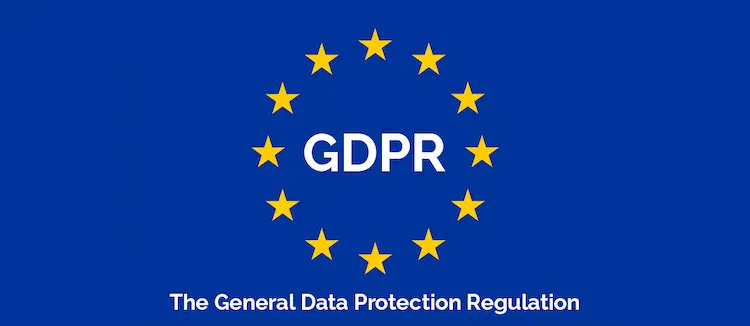Legal considerations might not be at the forefront of an entrepreneur’s mind in the thrilling journey of launching a tech startup. Yet, understanding the nuanced protections legal expertise offers can prove vital.
For instance, many need to realize the critical importance and benefits of getting a personal injury lawyer involved in business dealings, ensuring all aspects of company safety and liability are thoroughly managed. This is one facet of the comprehensive legal shield that today’s technology ventures need to employ from the beginning.

Decoding the Legal Landscape for Tech Startups
The tech industry is fast-paced, and legal issues must be considered. Founders must proactively seek legal counsel to navigate the labyrinth of regulation, compliance, and protection. Common pitfalls often include delayed patent filings, unclear founder agreements, or neglecting user privacy. But with the proper legal foresight, these startup snags can be more than just avoided—they can be transformed into robust foundations for future growth. That’s why early-stage tech firms must prioritize their legal structure as much as their business model.
Understanding the legalities of technology isn’t merely about defense; it’s a strategic move that can spur innovation. Encountering legal issues without preparation can be like navigating a minefield – one wrong step can have severe consequences. To combat this, startups should treat legal counsel not as an expense but as an investment. A wise legal strategy can streamline processes, mitigate risks, and offer a clear path for future expansion and funding opportunities. This proactive legal awareness can become the guiding light for tech startups, illuminating the path to a secure and sustainable business operation.

Also Read: 12 Tech Business ideas for Startups
Protecting Innovation: The Role of Intellectual Property
Intellectual property (IP) is the bedrock of tech innovation, safeguarding everything from software code to unique product designs. Missteps in IP rights can lead tech companies into lengthy and costly battles. Think about the tech world’s giants—they’re as well-known for their products as they are for their penchant to defend their IP fiercely. For smaller players, this demonstrates the non-negotiable need to thoroughly secure and protect intellectual assets from day one, ensuring their innovations remain a unique advantage in a highly competitive market.
As dynamic as the tech landscape is, being equally agile must be the strategy for IP management. By creating a well-defined IP plan, startups can easily navigate the complexities of copyrights, trademarks, patents and trade secrets. Furthermore, this allows them to explore strategic partnerships and licensing opportunities confidently. Understanding the different pathways to monetize intellectual properties can generate additional revenue streams and create robust business collaborations that push the boundaries of innovation. Proper IP management is a cornerstone for building a resilient and thriving tech business ecosystem.
The Cyber Law Effect on Business Operations
As cyber incidents become increasingly sophisticated, so does legislation governing these spaces. Cybersecurity laws are no longer extended guidelines but stringent requirements that businesses must adhere to or face significant penalties. Compliance poses particular challenges for tech companies, which often have to maneuver mountains of data and are responsible for securing it. Business leaders must develop a proactive approach to cybersecurity, keeping their operations innovatively efficient, legally sound, and trustworthy.
Major cyberattacks on renowned corporations paint a stark picture: no entity is immune to digital threats. In an age where such threats are common, startups need to integrate an understanding of cyber law into their operational DNA. Regular audits, cybersecurity training, and robust incident response plans can demonstrate to stakeholders and customers a company’s commitment to safeguarding data. This proactive cybersecurity approach is a form of modern corporate social responsibility, building client trust and distinguishing the company as a responsible innovator in technology.
Navigating the Maze of Data Privacy Regulations
Data has often been dubbed the ‘new oil’ in the digital economy, making data privacy laws like GDPR and CCPA the new rules of engagement. These regulations significantly affect a company’s operations, especially within marketing strategies that largely depend on data analytics. To thrive in this new environment, businesses must realign their practices with user privacy at the forefront, building trust through transparency and compliance. Treating data with the reverence it deserves can turn a legal necessity into a competitive edge.

Ethical Concerns with the Rise of Artificial Intelligence
As artificial intelligence (AI) permeates business practices, it opens a new chapter in legal ethics. How do we attribute AI-generated content, or who is responsible for AI’s actions? These questions are not just high-minded philosophical quandaries; they carry accurate legal weight.
The tech industry must work with lawmakers to develop regulations that allow innovation to flourish while keeping ethical standards in check. Managing AI in the workplace—particularly regarding employment law—is another hot-button issue where legal insight is indispensable.
E-Commerce Legalities: Staying Afloat in Digital Waters
The e-commerce boom has brought with it a wave of legal responsibilities. Terms of service and privacy policies are not just fine print—they are binding agreements that can make or break a company. Transaction liability needs scrutiny to protect the business and its customers. Furthermore, consumer protection laws ensure fair trade practices for maintaining user trust. By proactively setting clear policies and regulations, e-commerce platforms can ensure their longevity and integrity in the marketplace.
Employment Law Tailored for the Tech Sector
The tech sector, renowned for its avant-garde workplace culture, equally demands an innovative approach to employment law. With flexible work arrangements and a mix of contractors and full-time employees, businesses must be acutely aware of the legal delineations and the implications for hiring and employee management. Diversity and inclusion are no longer HR buzzwords but principles with legal weight in building a progressive work environment. Navigating these nuances provides legal safeguards and fosters a culture that can attract top talent.
Final Words
The intersection of technology and law is bustling with activity and complexity. For businesses operating within this realm, there’s a genuine need to stay ahead of the curve—not just in technological trends but also in the ever-evolving legal landscape. In a world where innovation is king, legal astuteness is your queen, defending your empire and paving the way for a prosperous reign. It’s clear, then, that legal expertise isn’t just an ancillary service for tech companies; it’s a vital resource that fuels their enduring success.